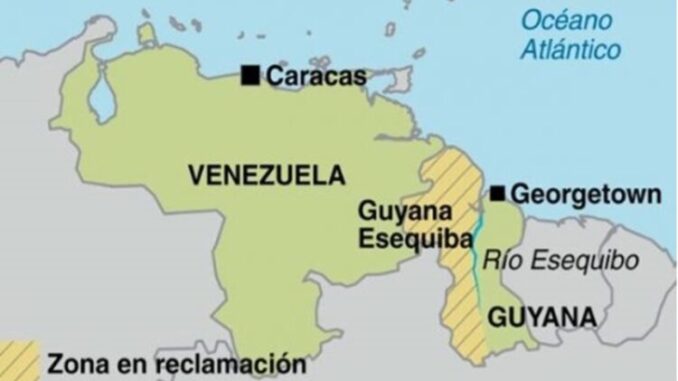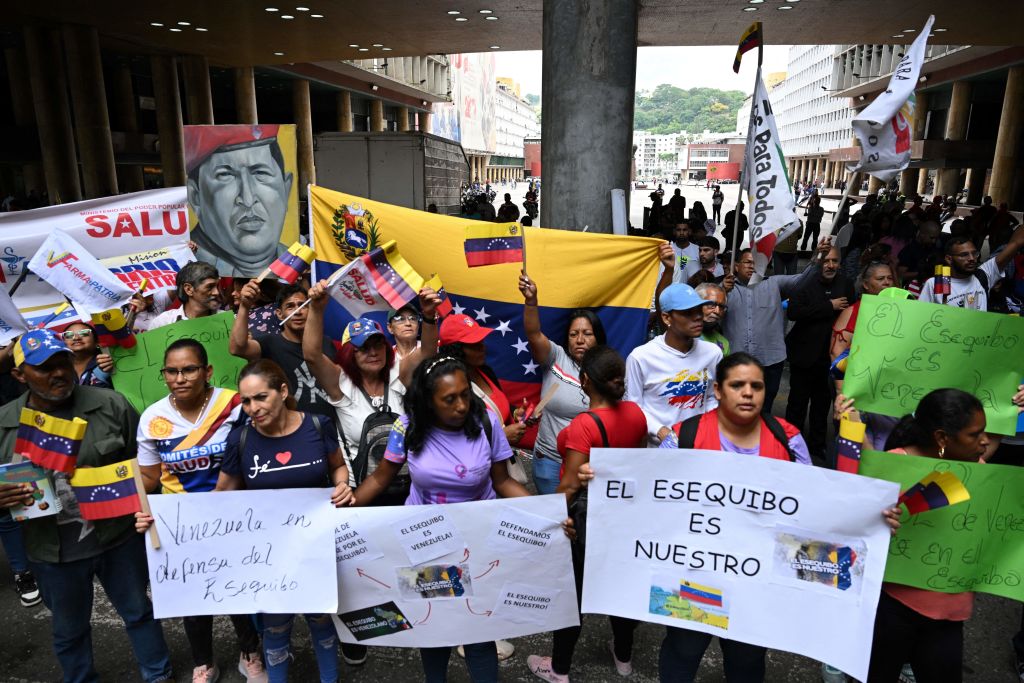
Guyana Defies Venezuela’s Illegal Annexation of Essequibo, Asserts Sovereignty
Guyana Defies Venezuela’s Illegal Annexation of Essequibo Asse... Guyana has firmly rejected Venezuela’s attempts to illegally annex the Essequibo region, asserting its sovereignty over the disputed territory and calling for international support in upholding its territorial integrity. The escalating tensions between the two South American nations stem from Venezuela’s longstanding claim over the mineral-rich Essequibo, which comprises nearly two-thirds of Guyana’s landmass. However, Guyana remains resolute in its position, emphasizing adherence to international law and the 1899 arbitral award that established the current boundary.
Historical Context of the Dispute
The territorial dispute between Guyana and Venezuela dates back to the colonial era, with Spain and Britain contesting control over the region. In 1899, an arbitral tribunal ruled in favor of British Guiana (now Guyana), establishing the boundary that has been internationally recognized for over a century. However, Venezuela has consistently rejected the ruling, claiming that the Essequibo River should mark the true border between the two nations.

The controversy reignited in 2015 when ExxonMobil discovered significant offshore oil reserves in Guyanese waters. Since then, Venezuela has intensified its claims, with President Nicolás Maduro’s government staging symbolic acts and referendums aimed at justifying the annexation of Essequibo.
Guyana’s Response to Venezuela’s Actions
Guyana has categorically rejected Venezuela’s moves, denouncing them as illegal under international law. President Irfaan Ali has reaffirmed that Guyana will not cede any part of its sovereign territory and has called upon the international community to uphold the rule of law. The Guyanese government has taken the dispute to the International Court of Justice (ICJ), which is currently adjudicating the matter.
In December 2023, Venezuela held a controversial referendum in which voters were asked to approve the annexation of Essequibo. The move was widely condemned by the international community, with the United States, the European Union, and the Caribbean Community (CARICOM) reaffirming their support for Guyana. The ICJ subsequently issued an order instructing Venezuela to refrain from taking any unilateral actions that could alter the status quo.
International Reactions and Support for Guyana
Guyana has garnered widespread international backing in its stance against Venezuela’s territorial claims. CARICOM, the Commonwealth, and the Organization of American States (OAS) have all reiterated their support for Guyana’s sovereignty and territorial integrity. The United Nations has also urged both nations to seek a peaceful resolution through legal means.
The United States has been particularly vocal in supporting Guyana, condemning Venezuela’s aggressive rhetoric and actions. Washington has warned that any attempts to forcibly annex Essequibo would be met with strong diplomatic and economic consequences. Brazil, which shares a border with both nations, has also expressed concern over the dispute and has called for regional stability.
Economic and Strategic Importance of Essequibo
Essequibo is not only rich in natural resources, including gold, bauxite, and timber, but it also plays a critical role in Guyana’s burgeoning oil industry. The discovery of offshore oil reserves has positioned Guyana as one of the fastest-growing economies in the world, attracting significant foreign investment. The potential annexation of Essequibo by Venezuela would not only threaten Guyana’s territorial integrity but also its economic future.
Venezuela, plagued by economic crisis and political instability, appears to be using the territorial dispute to rally nationalist sentiment and distract from its domestic problems. However, Guyana remains committed to safeguarding its resources and development prospects through diplomatic channels and legal frameworks.
Guyana’s Call for a Peaceful Resolution
Despite Venezuela’s provocative actions, Guyana has remained steadfast in its commitment to a peaceful and legal resolution of the dispute. The Guyanese government has continuously emphasized the importance of the ICJ process and has urged Venezuela to respect international legal mechanisms.

As tensions persist, the international community plays a crucial role in ensuring that the dispute does not escalate into conflict. Diplomatic efforts are underway to encourage dialogue, with regional organizations facilitating discussions to de-escalate the situation.
Conclusion
Guyana’s defiance against Venezuela’s illegal annexation of Essequibo underscores its unwavering commitment to sovereignty and international law. While Venezuela continues to challenge the 1899 arbitral award, Guyana remains resolute in defending its territorial integrity through legal and diplomatic means. With strong international support and adherence to lawful processes, Guyana stands firm against external aggression, ensuring that Essequibo remains an integral part of its national identity and future prosperity.
Leave a Reply